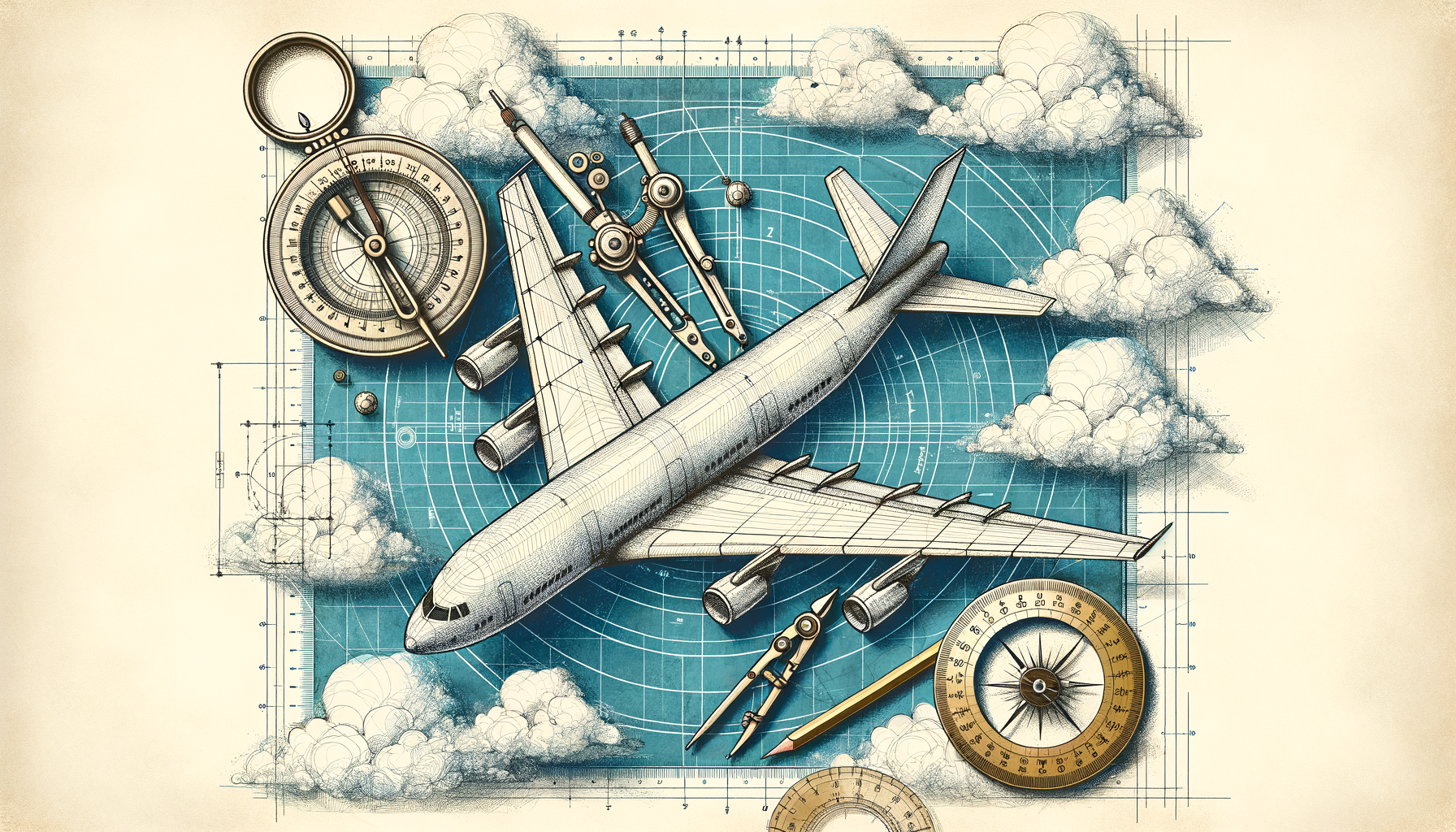Embarking on a career as an Aeronautical Engineer offers a thrilling and fulfilling journey for those captivated by aviation and aerospace technology. This profession is integral to the design, testing, and enhancement of aircraft and spacecraft, ensuring they adhere to rigorous safety and performance criteria. Aspiring professionals in this field can achieve success and long-term career advancement by grasping the essential responsibilities and skills required.
Understanding the Role of an Aeronautical Engineer
The position of an Aeronautical Engineer is indispensable to organizations engaged in aviation, defense, and space exploration. These experts play a crucial role in the creation and upkeep of aircraft and aerospace systems, ensuring adherence to safety regulations and boosting operational efficiency. Their contributions propel industry growth by fostering innovation and enhancing the dependability of air and space travel.
- Designing and developing aircraft components and systems to meet performance and safety standards.
- Conducting rigorous testing and analysis to evaluate the functionality and durability of aerospace products.
- Collaborating with multidisciplinary teams to integrate new technologies and materials into aircraft designs.
- Ensuring compliance with aviation regulations and industry standards throughout the development process.
- Investigating and resolving technical issues to optimize aircraft performance and safety.
Continuous learning and professional development are vital in this field due to rapid technological advancements and evolving industry standards. Staying updated with the latest innovations ensures Aeronautical Engineers remain effective and competitive.
Key Skills and Qualifications for an Aeronautical Engineer
Aeronautical Engineers are pivotal in advancing aerospace technology, merging creativity with technical acumen to design and refine aircraft and spacecraft. Their duties encompass conceptualizing designs, conducting simulations, and overseeing manufacturing processes to guarantee safety and efficiency. Typically, a robust foundation in aerospace or mechanical engineering, proficiency in CAD software, and knowledge of materials science are essential. Analytical skills and meticulous attention to detail are crucial for troubleshooting and optimizing designs. As the aerospace sector evolves, career growth opportunities expand into areas like unmanned aerial vehicles and space exploration, making this a forward-looking profession.
- Proficiency in computer-aided design (CAD) and simulation software.
- Strong understanding of aerodynamics, propulsion, and materials science.
- Ability to analyze complex data and perform rigorous testing.
- Excellent problem-solving and critical thinking skills.
- Effective communication and teamwork capabilities.
- Commitment to ongoing education and adapting to new technologies.
Experience and Industry Knowledge
To excel as an Aeronautical Engineer, candidates typically need a bachelor's degree in aerospace engineering or a related field, with many employers preferring advanced degrees for specialized roles. Practical experience through internships or cooperative education programs is highly valued, as it provides hands-on exposure to design, testing, and manufacturing processes. Key achievements might include successful project completions, innovations in design, or contributions to safety improvements. Beyond technical expertise, strong soft skills such as teamwork, communication, and adaptability are essential for collaborating with engineers, technicians, and regulatory bodies. These skills ensure professional effectiveness and the ability to navigate complex project requirements.
- Educational background in aerospace or mechanical engineering.
- Hands-on experience with aircraft design and testing projects.
- Proven ability to work collaboratively in multidisciplinary teams.
Top Employers for Aeronautical Engineers Worldwide
Identifying the top employers in the aerospace industry is essential for job seekers aspiring to build a successful career as an Aeronautical Engineer. These companies provide opportunities to engage in groundbreaking projects, access professional development, and receive competitive compensation. Understanding where to apply can help candidates target their job search effectively and align their skills with industry leaders.
- Boeing – A global leader in aerospace manufacturing, known for commercial and defense aircraft.
- Airbus – Renowned for innovative commercial aircraft and space systems development.
- Lockheed Martin – Specializes in defense, aerospace, and advanced technology solutions.
- Northrop Grumman – Focuses on aerospace systems, including unmanned aircraft and space technology.
- Rolls-Royce – Leading manufacturer of aircraft engines and propulsion systems.
Frequently Asked Questions
- What qualifications do I need to become an Aeronautical Engineer?
A bachelor's degree in aerospace or mechanical engineering is typically required, with advanced degrees preferred for specialized roles.
- What skills are essential for success in this career?
Key skills include proficiency in CAD software, strong analytical abilities, knowledge of aerodynamics, and effective teamwork and communication.
- What industries employ Aeronautical Engineers?
Common industries include commercial aviation, defense, space exploration, and aerospace manufacturing.
- How important is professional development in this field?
Very important; continuous learning helps engineers stay current with technological advances and regulatory changes.
- What career growth opportunities exist for Aeronautical Engineers?
Opportunities include specialization in areas like UAVs, space systems, project management, and research and development.
Conclusion
The career of an Aeronautical Engineer offers a blend of technical challenge and innovation, playing a pivotal role in shaping the future of aviation and aerospace. By developing strong technical skills, gaining relevant experience, and targeting top employers, job seekers can position themselves for success in this exciting field. Continuous learning and adaptability remain key to thriving amid evolving technologies and industry demands.






